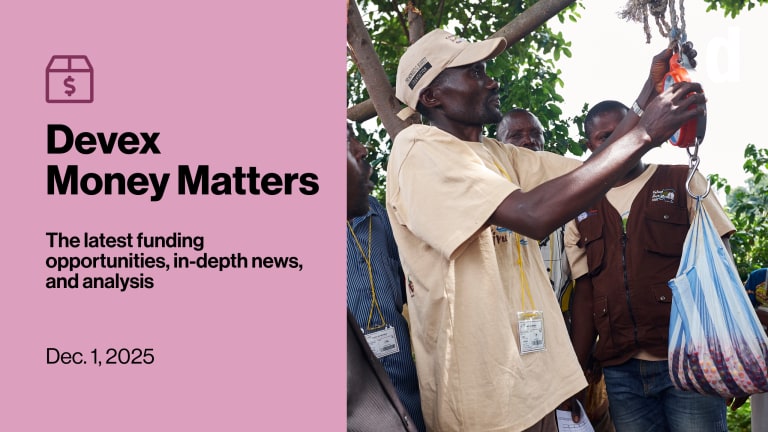Open Philanthropy is providing $150 million to four fellow grant-makers, including the Bill & Melinda Gates Foundation, to boost funding for what it views as high-impact programs in health care, climate change, and other areas of global development.
The grant-making and research organization, which was founded by billionaire couple Dustin Moskovitz and Cari Tuna, normally gives directly to charities rather than fellow grant-makers. It launched its $150 million regranting challenge last year as part of an effort to fund existing philanthropic programs rather than trying to duplicate their work. The idea adheres to the organization’s effective altruism approach to philanthropy, which involves using data and evidence to amplify the impact of every dollar given.
More than 100 funders responded to the open call for grantees. The winners, whom Devex is the first to report, were unveiled Thursday. Among the recipients is the Gates Foundation, one of the world’s largest philanthropic organizations, which will receive $65 million to support a range of efforts to meet global demand for the oral cholera vaccine and support a clinical trial for a new tuberculosis vaccine candidate. Another $5 million will be directed to the Gates Foundation’s global education program to improve literacy and numeracy in low- and middle-income countries.








